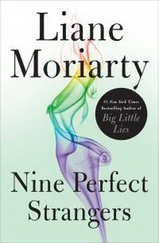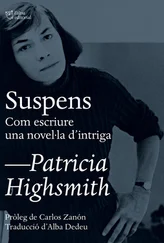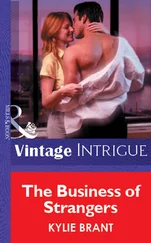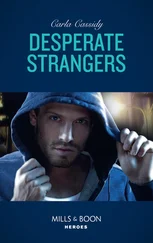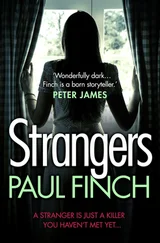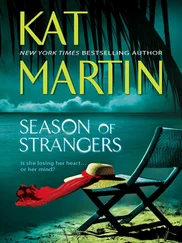“You didn’t by any chance bring a bottle.”
Bob jumped up. “I certainly did. It’s weighing me down and I completely forgot it.” He set the bottle on the table and waited for Guy to take it. Bob was about forty-five, a man of modest but sanguine temperament, with an indelible stamp of contented bachelorhood and of complete absorption and authority in his profession. “After you,” he prompted Guy. “I want to drink a private toast to Anne. She’s very beautiful, Guy.” He added softly, with a smile, “As beautiful as a white bridge.”
Guy stood looking at the opened pint bottle. The hubbub out the window seemed to poke fun at him now, at him and Anne. The bottle on the table was part of it, the jaded, half-humorous concomitant of the traditional wedding. He had drunk whisky at his wedding with Miriam. Guy hurled the bottle into the corner. Its solid crack and spatter ended the hooting horns, the voices, the silly tremolo of the organ only for a second, and they began to seep back again.
“Sorry, Bob. I’m very sorry.”
Bob had not taken his eyes from him. “I don’t blame you a bit,” he smiled.
“But I blame myself!”
“Listen, old man—”
Guy could see that Bob did not know whether to laugh or be serious.
“Wait,” Treacher said. “I’ll get us some more.”
The door opened just as Bob reached for it, and Peter Wriggs’ thin figure slipped in. Guy introduced him to Treacher. Peter had come all the way up from New Orleans to be at his wedding. He wouldn’t have come to his wedding with Miriam, Guy thought. Peter had hated Miriam. There was gray at Peter’s temples now, though his lean face still grinned like a sixteen-year-old’s. Guy returned his quick embrace, feeling that he moved automatically now, on rails as he had the Friday night.
“It’s time, Guy,” Bob said, opening the door.
Guy walked beside him. It was twelve steps to the altar. The accusing faces, Guy thought. They were silent with horror, as the Faulkners had been in the back of the car. When were they going to interfere and stop it all? How much longer was everyone going to wait?
“Guy!” somebody whispered.
Six, Guy counted, seven.
“Guy!” faint and direct, from among the faces, and Guy glanced left, followed the gaze of two women who looked over their shoulders, and saw Bruno’s face and no other.
Guy looked straight again. Was it Bruno or a vision? The face had been smiling eagerly, the gray eyes sharp as pins. Ten, eleven, he counted. Twelve steps up, skip seven… . You can remember it, it’s got a syncopated rhythm. His scalp tingled. Wasn’t that a proof it was a vision and not Bruno? He prayed, Lord, don’t let me faint. Better you fainted than married, the inner voice shouted back.
He was standing beside Anne, and Bruno was here with them, not an event, not a moment, but a condition, something that had always been and always would be. Bruno, himself, Anne. And the moving on the tracks. And the lifetime of moving on the tracks until death do us part, for that was the punishment. What more punishment was he looking for?
Faces bobbed and smiled all around him, and Guy felt himself aping them like an idiot. It was the Sail and Racquet Club. There was a buffet breakfast, and everyone had a champagne glass, even himself. And Bruno was not here. There was really no one here but wrinkled, harmless, perfumed old women in hats. Then Mrs. Faulkner put an arm around his neck and kissed his cheek, and over her shoulder he saw Bruno thrusting himself through the door with the same smile, the same pinlike eyes that had already found him. Bruno came straight toward him and stopped, rocking on his feet.
“My best—best wishes, Guy. You didn’t mind if I looked in, did you? It’s a happy occasion!”
“Get out. Get out of here fast.”
Bruno’s smile faded hesitantly.” I just got back from Capri,” he said in the same hoarse voice. He wore a new dark royal-blue gabardine suit with lapels broad as an evening suit’s lapels. “Howve you been, Guy?”
An aunt of Anne’s babbled a perfumed message into Guy’s ear, and he murmured something back. Turning, Guy started to move off.
“I just wanted to wish you well,” Bruno declared.“There it is.”
“Get out,” Guy said. “The door’s behind you.” But he mustn’t say any more, he thought. He would lose control.
“Call a truce, Guy. I want to meet the bride.”
Guy let himself be drawn away by two middle-aged women, one on either arm. Though he did not see him, he knew that Bruno had retreated, with a hurt, impatient smile, to the buffet table.
“Bearing up, Guy?” Mr. Faulkner took his half-empty glass from his hand. “Let’s get something better at the bar.”
Guy had half a glassful of Scotch. He talked without knowing what he was saying. He was sure he had said, Stop it all, tell everyone to go. But he hadn’t, or Mr. Faulkner wouldn’t be roaring with laughter. Or would he?
Bruno watched from down the table as they cut the cake, watched Anne mostly, Guy noticed. Bruno’s mouth was a thin, insanely smiling line, his eyes glinted like the diamond pin on his dark blue tie, and in his face Guy saw that same combination of wistfulness, awe, determination, and humor that he had seen the first moment he met him.
Bruno came up to Anne. “I think I met you somewhere before. Are you any relation to Teddy Faulkner?”
Guy watched their hands meet. He had thought he wouldn’t be able to bear it, but he was bearing it, without making a move.
“He’s my cousin,” Anne said with her easy smile, the same smile she had given someone a moment before.
Bruno nodded. “I played golf with him a couple of times.”
Guy felt a hand on his shoulder.
“Got a minute, Guy? I’d—” It was Peter Wriggs.
“I haven’t.” Guy started after Bruno and Anne. He closed his fingers around Anne’s left hand.
Bruno sauntered on the other side of her, very erect, very much at ease, bearing his untouched piece of wedding cake on a plate in front of him. “I’m an old friend of Guy’s. An old acquaintance.” Bruno winked at him behind Anne’s head.
“Really? Where’d you two know each other?”
“In school. Old school friends.” Bruno grinned. “You know, you’re the most beautiful bride I’ve seen in years, Mrs. Haines. I’m certainly glad to have met you,” he. said, not with finality but an emphatic conviction that made Anne smile again.
“Very glad to have met you,” she replied.
“I hope I’ll be seeing you both. Where’re you going to live?”
“In Connecticut,” Anne said.
“Nice state, Connecticut,” Bruno said with another wink at Guy, and left them with a graceful bow.
“He’s a friend of Teddy’s?” Guy asked Anne. “Did Teddy invite him?”
“Don’t look so worried, darling!” Anne laughed at him.“We’ll leave soon.”
“Where is Teddy?” But what was the use finding Teddy, what was the sense in making an issue of it, he asked himself at the same time.
“I saw him two minutes ago up at the head of the table,” Anne told him. “There’s Chris. I’ve got to say hello to him.”
Guy turned, looking for Bruno, and saw him helping himself to shirred eggs, talking gaily to two young men who smiled at him as if under the spell of a devil.
The ironic thing, Guy thought bitterly in the car a few moments later, the ironic thing was that Anne had never had time to know him. When they first met, he had been melancholic. Now his efforts, because he so rarely made efforts, had come to seem real. There had been, perhaps, those few days in Mexico City when he had been himself.
“Did the man in the blue suit go to Deems?” Anne asked.
They were driving out to Montauk Point. One of Anne’s relatives had lent them her cottage for their three-day honeymoon. The honeymoon was only three days, because he had pledged to start work at Horton, Horton and Keese, Architects, in less than a month, and he would have to work on the double to get the detailed drawings for the hospital under way before he began. “No, the Institute. For a while.” But why did he fall in with Bruno’s lie?
Читать дальше




